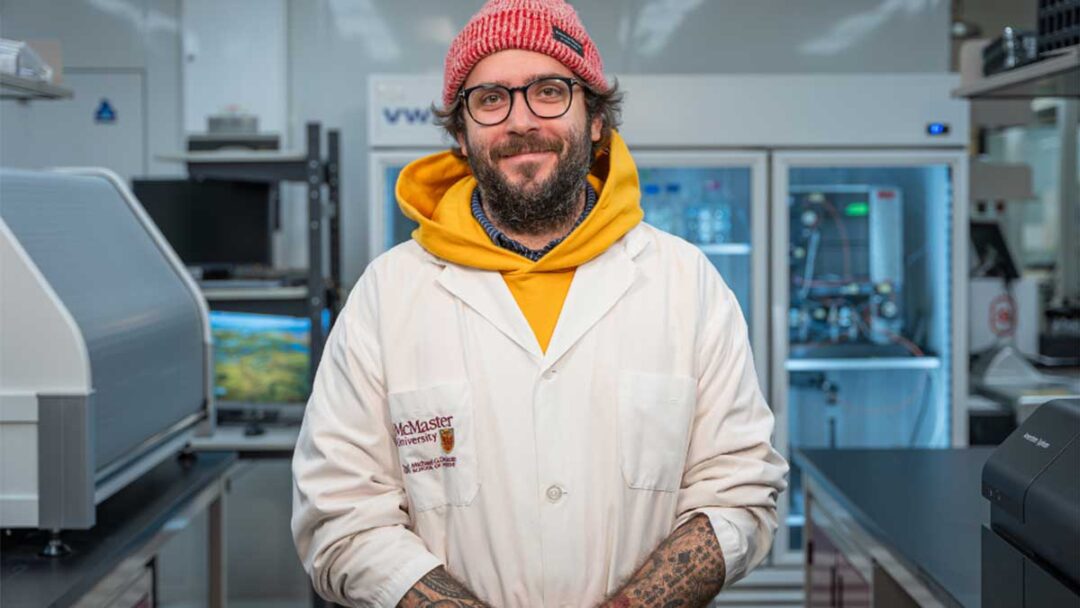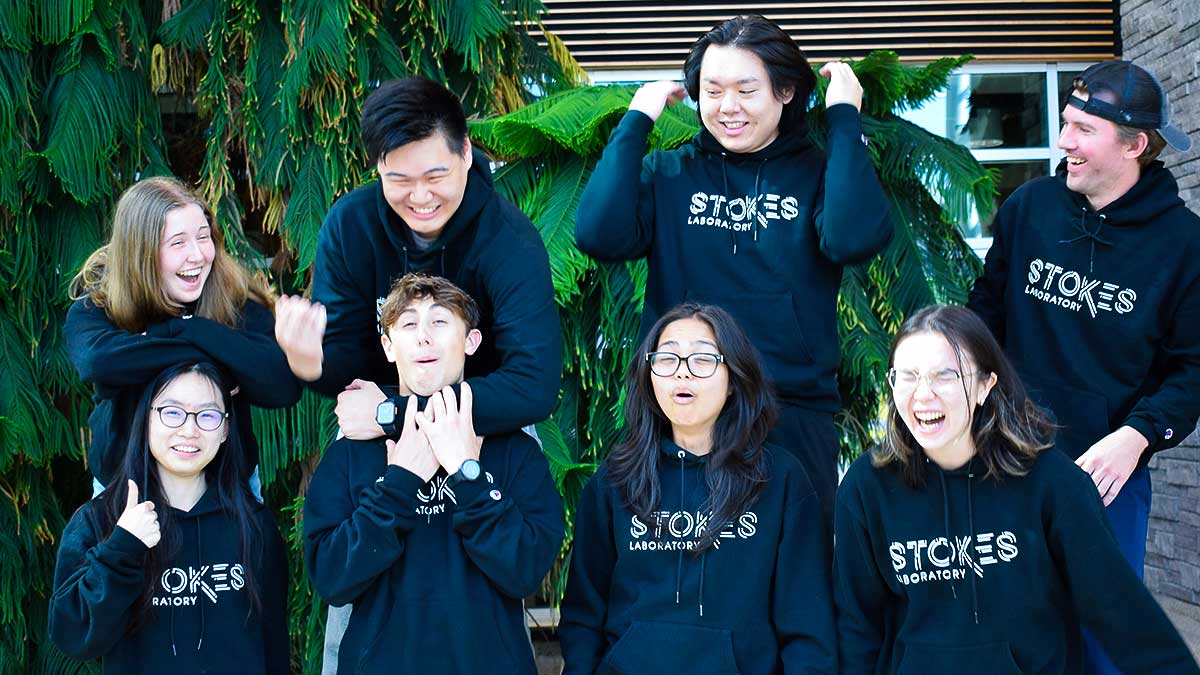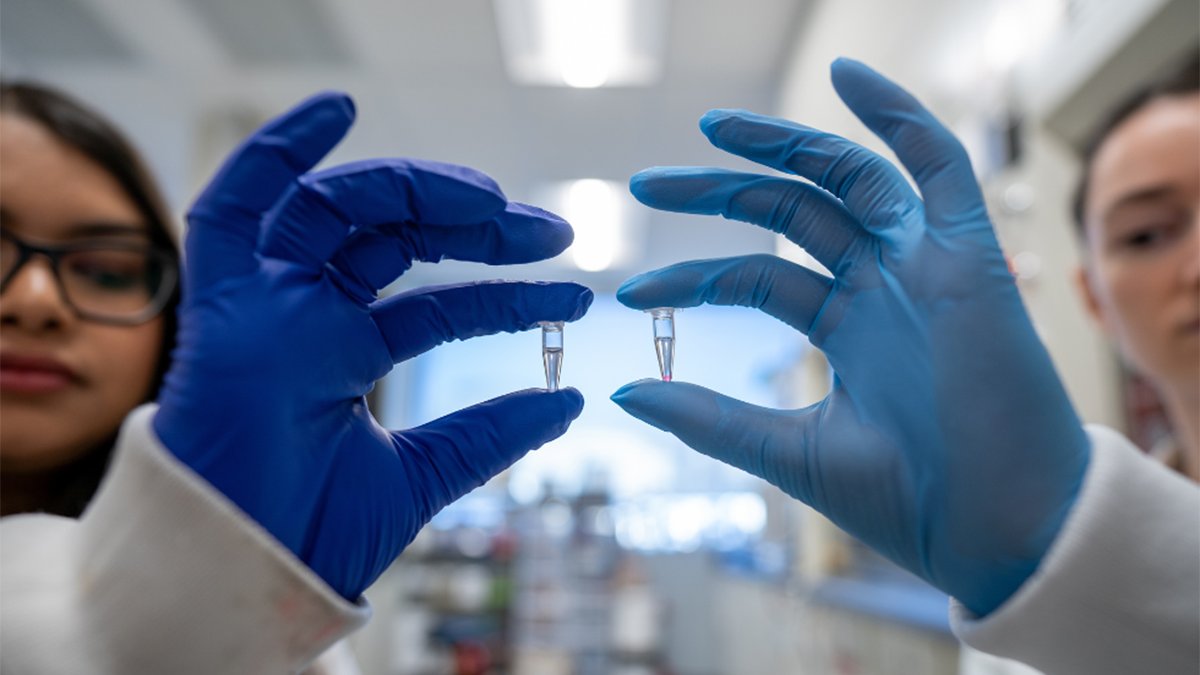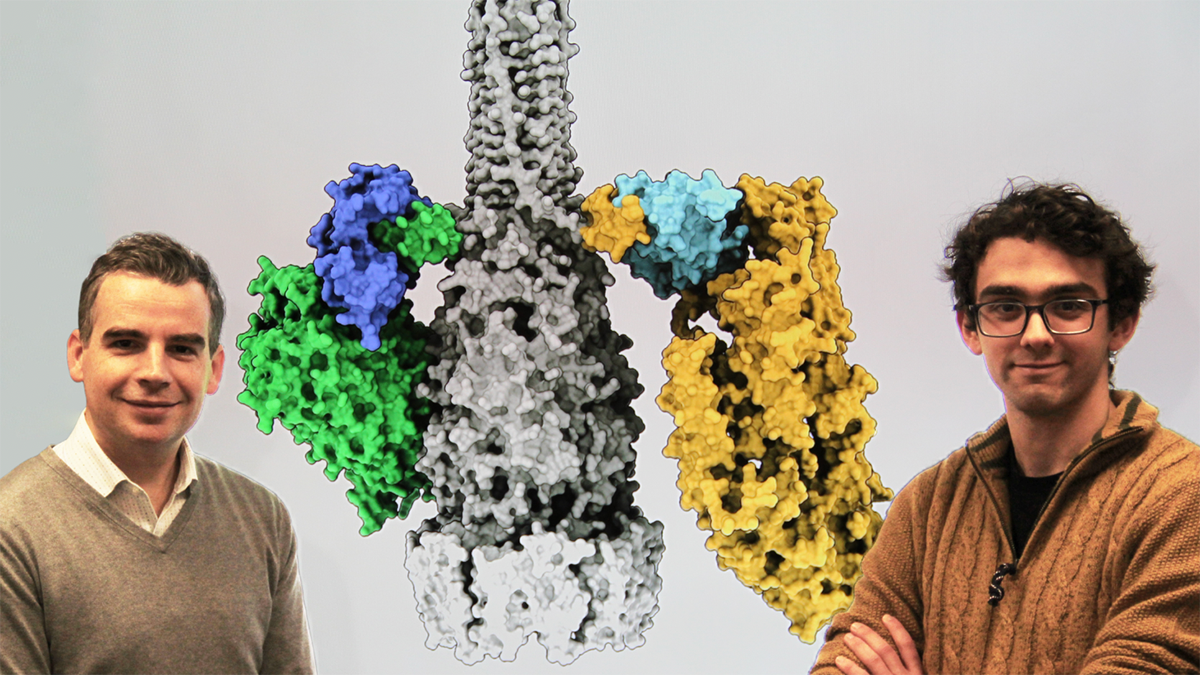Made-at-Mac: Scientist heads new AI drug discovery start-up in search of antibiotics, anticancer medicines, and more

Jon Stokes makes poison for a living.
Sure, he’s also an assistant professor at McMaster University, a member of the Michael G. DeGroote Institute for Infectious Disease Research (IIDR), and the founder of Stoked Bio, a new biotech start-up company; but, ask him, and he’ll tell you it all comes back to “making new poison.”
It’s a drastic over-simplification of extremely complex work, but it really is true. Stokes works tirelessly to discover new antibiotics — functional poisons designed to kill dangerous, disease-causing bacteria.
Last year, using artificial intelligence (AI), he discovered abaucin, a potent new drug candidate that targets Acinetobacter baumannii, one of the most dangerous drug-resistant bacteria in the world. Recently, he continued that work, inventing a brand-new AI algorithm that can design even more new antibiotics that target A. baumannii.
He launched Stoked Bio to ensure that such discoveries can be meaningfully mobilized so that they actually help people. For Stokes, this means harnessing AI to find a steady stream of new, breakthrough medicines that make it out of controlled, laboratory settings and into the patients that need them — something that’s historically been a challenge in the antibiotic space.
“In academia, we typically throw our ideas over the fence, where they’re picked up and moved along by outside experts,” says Stokes, part of the executive team at McMaster’s Global Nexus. “Unfortunately, when you’re working with antibiotics, there’s often nobody on the other side of that fence.”
Stokes cites the inevitability of antimicrobial resistance (AMR) as one of the main reasons for why so few pharma companies invest in the research and development of new antibiotics.
AMR, he explains, is a phenomenon through which bacteria and other microbes evolve to withstand the medicines that once killed them, leaving people and animals vulnerable to the infections that they cause and rendering the medicines themselves obsolete. This, coupled with cautious prescription practices and the relatively low market value of antimicrobials, leaves little financial incentive for investment; however, he believes that as the AMR crisis worsens, the demand for new antibiotics will increase drastically.
In any case, Stoked Bio isn’t waiting around to find out. The company is dead-set on changing the paradigm right now, regardless of the economic landscape. With the Stokes Lab at McMaster and Stoked Bio in the market, Stokes feels confident that he can quickly move new drug candidates toward commercialization.
“If I’m sitting on both sides of the fence, then I know exactly who I’m throwing my ideas over to,” Stokes explains. “It allows for intellectual continuity.”
Using world-leading AI methods, the company will produce new drug candidates at a high rate and in a cost-effective way to offset the economic challenges typically associated with antibiotic R&D. Additionally, while Stokes is committed to rejuvenating the world’s stagnant antibiotic pipeline, Stoked Bio will bolster its revenue opportunities by being what he calls “disease agnostic.”
Indeed, the company is searching vast chemical spaces for a broad array of potential medicines — period. Whether those medicines happen to poison bacteria or other agents of disease, like cancer cells, is irrelevant to Stokes and his colleagues.
Already, the company has five novel drug candidates in the pipeline — three antibiotics, one antifungal, and one emerging anticancer compound. They’ve also begun screening for antivirals.
Stokes says he’s self-aware enough to know that his strengths lie in science — not business — and so he has strategically partnered on Stoked Bio with “people who know what they’re doing.”
He co-founded the company with Niagara-area entrepreneur Chris Sinclair and together they appointed Jeff Skinner, a long-time pharma executive, as CEO. The group believes that this three-pronged leadership model will allow everyone to focus on what they do best.
“We have a really complementary set of skills and experiences that will allow us to drive Stoked Bio forward together,” says Skinner. “We have the pure scientist, the successful builder, and someone with industry experience, like myself. It’s a great mix.”
While Sinclair and Skinner hitched themselves to the company for its potential to bring critical new medicines to market, they both admit that having the opportunity to work with Stokes himself was a big part of what drew them to Stoked Bio.
“He is without a doubt the most brilliant person I’ve ever met, but, more than that, he’s authentic, and there’s something beautiful about his authenticity,” says Sinclair. “He cares about this so much and he really wants to do well by people. He’s completely unique and, as far as I’m concerned, a total mold-breaker in the biotech space.”
“He’s engaged, he’s active, and he’s involved,” adds Skinner. “He cares so much about the work we’re doing, and he genuinely wants to help people.”
Among those people Stokes wants to help are his students. He says it was critical that his new company was designed in such a way that would give McMaster students opportunities to gain important professional experience.

Stoked Bio has already tapped three graduate students — Denise Catacutan, Gary Liu, and Jeremie Alexander — for important roles, and Stokes says the company will always welcome other trainees looking to gain exposure to the industry side of research.
“Having a really close relationship between the lab and the company will create opportunities for curious students to use both sides of their brain,” Stokes says. “They can get basic science training at McMaster, and, if it appeals to them, they can explore the clinical and business applications of their work through the company.”
Grounding Stoked Bio at McMaster is a way for Stokes to ensure that any successes enjoyed by the company are also enjoyed by the university and the surrounding community. He’s a Hamiltonian through and through — both of his parents worked at Stelco — and giving back to the city that raised him is worth more to him than any potential success in a bigger market would be.
“Biotech can work in Hamilton — just look at Fusion Pharmaceuticals,” he says. “For Stoked Bio, it’s the perfect spot. The IIDR is the best place in the entire world to study antibiotics, and there’s enough talent, infrastructure, and clinical resources in the region to strongly support something like this. Hopefully we can, in turn, support new growth and investment in Hamilton.”
Poison — bringing new life to the community? The irony isn’t lost on him.
Dept. Biochem, Global Nexus, Michael G. DeGroote Institute for Infectious Disease Research, ResearchRelated News
News Listing

Department of Medicine ➚
Pain to progress: An impactful history of lupus research and care at McMaster
Collaborations & Partnerships, Education, Research
2 days ago

Brighter World ➚
McMaster research in 2024: From AI innovation to breakthroughs in health care
Research
4 days ago

